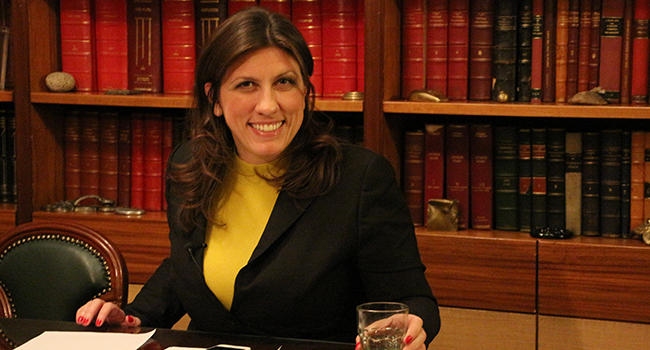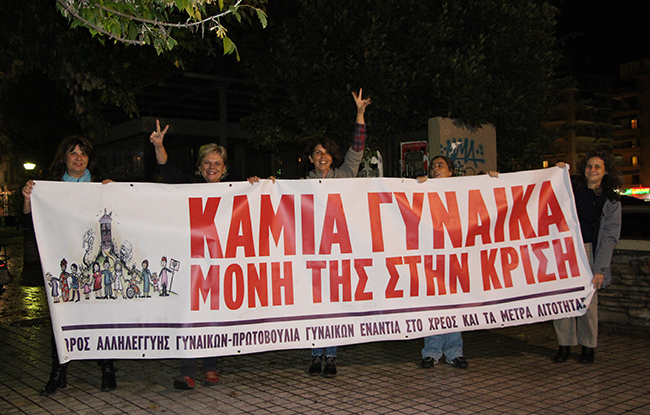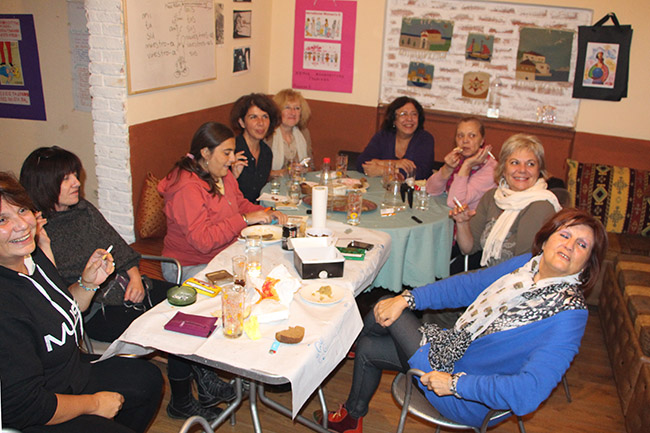
Zoe Konstantopoulou
Progress may be illusionary. At the time of a global set back in terms of women’s human rights, with forceful movements of dispossession, the Greek crisis epitomizes this global process of dismantlement of social and democratic representation. In 2010, Greece was declared guilty of public debt. Consequently, Greece as a country was put in the custody of the Troika (the European Central Bank, the European Commission, and the IMF), a non-elected extraterritorial jurisdiction. Zoe Konstantopoulou in her first term in the Hellenic parliament with Syriza showed her determination to change the regime of undemocratic, unattended corruption that reigned in the parliament at that time, allowing the odious measures of austerity to control the country.
Konstantopoulou resisted the outrageous mockery of democracy, as on September 2013, when a series of bills were declared by the President of the Hellenic Parliament (the Vouli) of the time Kiriakos Virvidakis, adopted unanimously without actual votes. No debates took place in the Vouli that day, and only Zoe Konstantopoulou, one of the three delegates present, was screaming and demanding proof of the vote, to no avail.
In January 2015, Syriza won the election and Zoe was elected with 60% of the vote as President of the Hellenic parliament. She immediately instilled an anti corruption climate. In addition, for her restoring the democratic process meant inviting the civil society to be finally recognized. She celebrated women’s struggles for social justice. In April 2015, she mandated an audit of the public debt, forming the Debt Truth Committee, which released a preliminary report in June 2015. She declared during a meeting in Paris last May: “austerity kills, it kills society, human beings, and kills democracy and the Europe of people.”
The recent report of the Independent Expert on the effect of foreign debt and other related Financial Obligations of States on the Full Enjoyment of all Human Rights concurred with Zoe’s analysis. It stated, “To think of Sovereign debt markets as totally independent from the notion and realization of social and economic human rights is something unacceptable…” (Article 55)
The report also emphasized that with a 35.7% increase of the number of people falling into poverty, “austerity appears to have exacerbated the social crisis in Greece and have failed to stimulate the national economy to the benefit of the Greek population.” The same report asserted the importance of an audit of public debt.
Zoe Konstantopoulou lost her seat after the coup that triggered the new election last September. After the election, the audit was abandoned and its preliminary report and process were erased from the parliament web site. Syriza was reformed without people like Zoe; nonetheless she continues the struggle in the name of justice.
Let’s listen to Zoe Konstantopoulou:
A longer set of interviews with Zoe Konstantopoulou is available, in French, here.
(Photo credit: Marie-Hélène Le Ny) (Interview by Brigitte Marti)

